![Placeholder image meaning the image has not been filled in 7 mistakes to absolutely avoid with essential oils in summer [2024 update]](https://landema.com/media/cache/blog_post_header/0f/76/3edfbb9438f9e8857babede287a8.webp)
Essential oils: allies to use with respect
30 mai 2024Ah, summer! Sun, heat, relaxation... but also minor ailments and discomforts that can quickly spoil your vacation. Fortunately, essential oils are here to help us fully enjoy the beautiful season. Antiseptic, soothing, healing... their virtues are innumerable to relieve sunburn, repel mosquitoes or even soothe pain.
But be careful, these powerful plant extracts should not be used lightly! Misused, essential oils can quickly become irritating, allergenic or even toxic. Before getting started, it is essential to know the precautions for use to avoid any risk.
In this article, we reveal the 7 most common mistakes in the use of essential oils in summer. From photosensitisation to poor quality essential oils, to the dangers of ingestion without medical advice, you will know everything to avoid in order to serenely enjoy the benefits of aromatherapy this summer. So, ready to become an expert on the proper use of essential oils? Let's go!
In this article, you will find:
- Certain essential oils such as citrus oils are photosensitising. Applied before sun exposure, they can cause severe burns. A delay of 8 to 12 hours must be respected before exposure or use deterpenated oils.
- Essential oils are concentrates of active molecules to be handled with caution. They must always be diluted in a vegetable oil before application on the skin, not diffused for more than 30 minutes, and extra vigilance is required for children and pregnant women. Ingestion should only be done on medical advice.
- To guarantee quality and safety, it is essential to choose 100% pure and natural essential oils, preferably organic. Store them away from heat and light in tinted glass bottles. If in doubt, always ask a professional (aromatherapist, pharmacist, etc.) for advice.
By following these common sense tips, you can serenely enjoy these wonderful aromatic extracts that nature offers us. Essential oils will quickly become your best allies for a zen summer, in top shape and without danger!
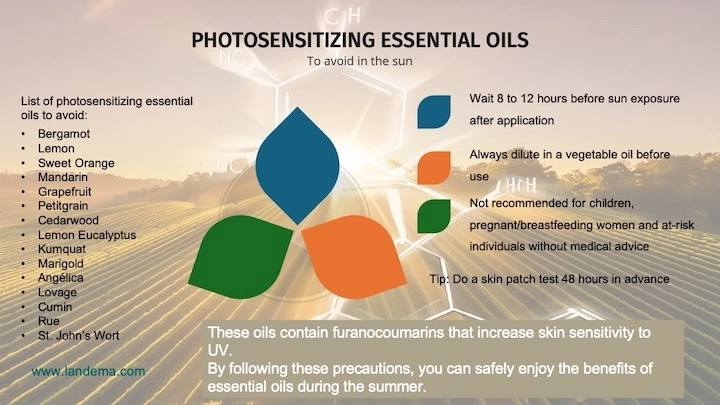
Error #1: Using photosensitising essential oils before sun exposure
This is the most frequent and potentially most dangerous mistake in summer. Photosensitisation is a skin reaction caused by the interaction between certain components of essential oils, called furanocoumarins, and the sun's UV rays.
The main essential oils concerned are those derived from citrus fruits such as Lemon (Citrus limon), Bergamot (Citrus bergamia), Grapefruit (Citrus paradisi) or Mandarin (Citrus reticulata). Applied pure on the skin just before sun exposure, they can lead to severe burns and stains.
The golden rule is therefore to respect a minimum delay of 8 to 12 hours between the application of a photosensitising essential oil and exposure to the sun or artificial UV. You can also opt for deterpenated citrus essential oils, i.e. rid of their furanocoumarins, such as Bergamot without bergapten. Or cover the treated areas with clothing to protect them.

Error #2: Applying pure essential oils on the skin without diluting them
Another reflex to avoid: pouring a few drops of pure essential oil directly on your skin without in-depth knowledge of it. As natural as they are, essential oils remain very concentrated products that can quickly become irritating in direct contact with the epidermis, especially in case of sensitive skin.
Certain essential oils are particularly dermocaustic, i.e. likely to irritate or even "burn" the skin. This is the case with Cinnamon (Cinnamomum verum), Clove (Eugenia caryophyllus), Oregano (Origanum vulgare), Thyme with thymol (Thymus vulgaris) or Mountain Savory (Satureja montana). Beware of pure applications!
The good practice is to always dilute a few drops of essential oil in a vegetable oil before applying it on the skin. The vegetable oil acts as a carrier that allows to convey the actives of the essential oil while softening its contact. You can use Sweet Almond oil, Argan oil, Jojoba oil...
The recommended dosages vary according to the intended use (relaxing massage, muscle relief...) and each person's tolerance, but count on average 2 to 3 drops of essential oil for 1 teaspoon of vegetable oil. If in doubt, always ask your aromatherapist or pharmacist for advice!

Error #3: Neglecting specific precautions for children and pregnant women
Children and pregnant women are part of the so-called "sensitive" groups for which the use of essential oils must be done with great caution, or is sometimes even contraindicated.
In children, the immune system and skin barriers are not yet fully developed. Their metabolism does not allow them to properly eliminate certain potentially toxic or allergenic molecules contained in essential oils. Before the age of 3, it is therefore better to abstain and favor gentler treatments such as homeopathy or floral waters.
During pregnancy, certain essential oils should be formally avoided because they contain abortive or neurotoxic compounds for the fetus. This is the case with Thuja (Thuja canadensis), Sage (Salvia officinalis), Hyssop (Hyssopus officinalis) or Spearmint (Mentha spicata). Others can be used occasionally at low doses, such as True Lavender (Lavandula angustifolia) to promote sleep.
In any case, whether for a child or during pregnancy, it is imperative to ask the advice of your doctor or a health professional specialised in aromatherapy before any use of essential oils.
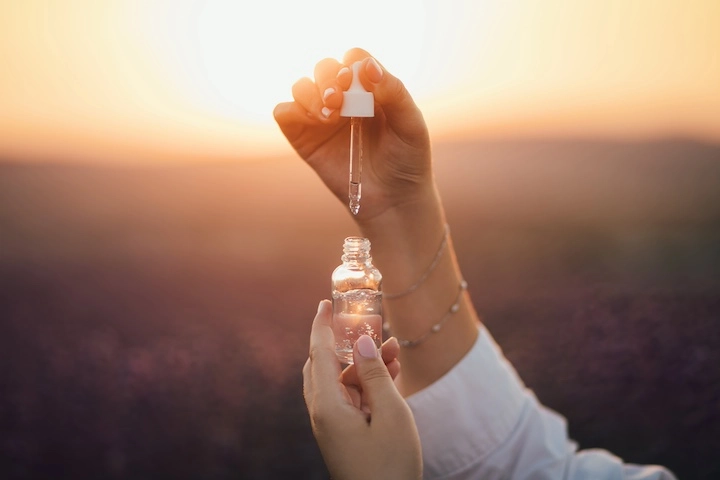
Error #4: Poorly storing essential oil bottles
To guarantee optimal quality and effectiveness of your essential oils over time, proper storage of the bottles is essential. Yet this is a point often overlooked, especially in summer when high temperatures can quickly alter these precious natural extracts.
Essential oils are indeed particularly sensitive to light and heat which degrade their volatile aromatic compounds. To slow down this oxidation process, you must always store your essential oil bottles in a cool place (ideally between 5 and 25°C), dry and away from sunlight.
Preferably choose tinted glass bottles (amber or blue) which better protect the contents than transparent glass. Also make sure that your bottles are always tightly closed after each use to avoid evaporation of the compounds.
Well preserved, essential oils keep on average 3 to 4 years. Beyond that, their smell and color can deteriorate, a sign that they have lost quality. Feel free to note the opening date on your bottles to better keep track. And throw away without hesitation any essential oil that seems doubtful to you!
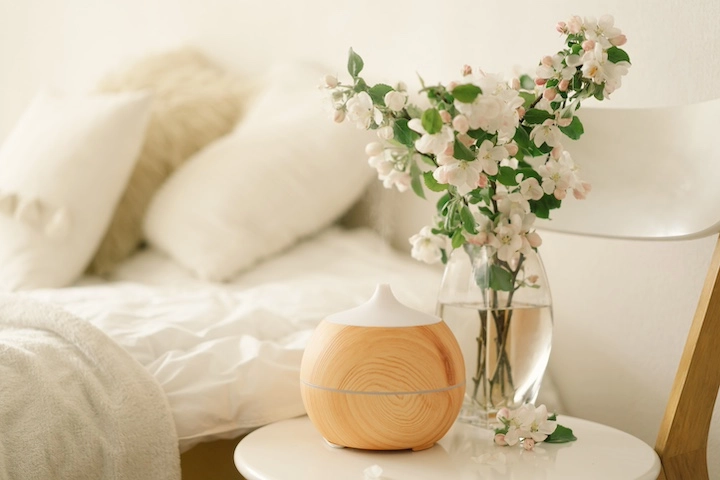
Error #5: Diffusing essential oils for too long or continuously
Atmospheric diffusion is an excellent way to enjoy the benefits of essential oils while pleasantly scenting your interior. But be careful not to overdo it, at the risk of causing headaches and respiratory tract irritation.
For optimal and safe diffusion, it is better to respect a few common sense rules. First, choose a professional quality diffuser that preserves the integrity of the aromatic compounds. Avoid combustion (candles, incense burners...) which denatures the molecules.
Then, do not diffuse for more than 30 consecutive minutes, up to 3 times a day maximum. Beyond that, the air becomes too saturated with aromatic compounds and can become irritating, especially for sensitive people (children, asthmatics, allergy sufferers...).
Also remember to ventilate the room well after diffusion to renew the air. And if you have children or pets, be even more vigilant. Certain essential oils such as Peppermint (Mentha x piperita) or Atlas Cedar (Cedrus atlantica) should be avoided in diffusion, and even more so in their presence.
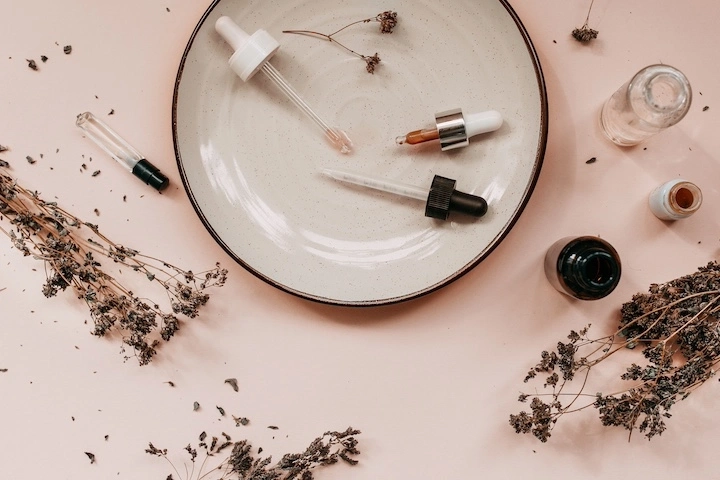
Error #6: Ingesting essential oils without the advice of a professional
While the cutaneous route and inhalation are the most common and safest ways to use essential oils, the oral route is much more delicate. Swallowing a few drops of essential oil without precaution can indeed quickly become dangerous.
Irritation of the digestive mucosa, burns, interactions with certain medications, hepatic or renal toxicity... The risks of the oral route are numerous and should not be taken lightly. Only a doctor or an experienced aromatherapist can prescribe you the right essential oil, at the right dosage and for the right duration.
Before any ingestion, it is imperative to check the specific contraindications of each essential oil. Some are thus formally discouraged in case of gastric ulcer, reflux, gallstones or epilepsy. Others can interact with anticoagulant, antidiabetic, antiepileptic treatments...
If the oral route is indicated, it will always be done over a short period (a few days maximum), with high quality essential oils and according to a precise mode of administration: on a neutral carrier (spoonful of honey, capsule, tablet...) or diluted in a vegetable oil, never pure.
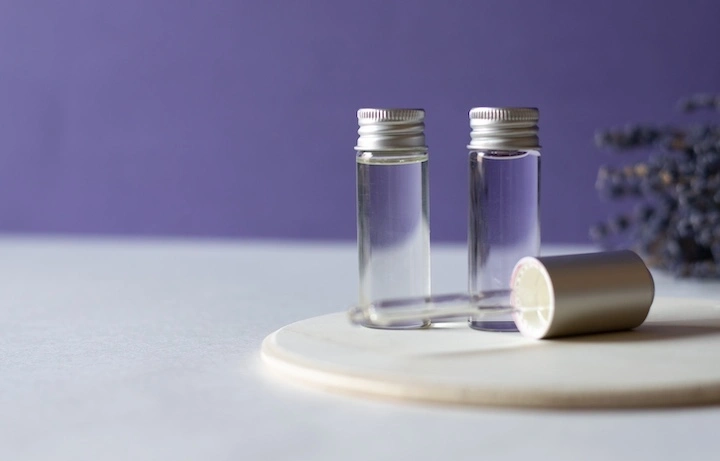
Error #7: Using poor quality essential oils
To guarantee optimal effectiveness and safety of essential oils, it is essential to ensure their quality. However, not all brands are equal on this essential criterion.
To take no risk, always choose 100% pure, natural and if possible organic essential oils. Avoid ready-made blends whose exact composition is unknown. Prefer tinted glass bottles which better preserve the precious liquids from oxidation.
On the label, check for the mandatory information: the Latin name of the plant, the distilled part (leaf, flower, bark...), the extraction method (distillation, expression...), the country of origin and the batch number. The presence of the main active molecules is also a guarantee of quality.
Beware of prices that are too attractive and miraculous claims. Producing a quality essential oil has a cost which is logically reflected in the selling price. If it's too good to be true, it often hides something!
For your purchases, favor specialised stores, organic shops, pharmacies or parapharmacies, and online shops of reliable brands like Landema.com, specialist in the online sale of professional quality essential oils directly from the producer. The salespeople and customer services are generally well trained and will be able to advise you.
For more advice, please read the article "Choosing, using, and preserving essential oils: best practices for responsible use"
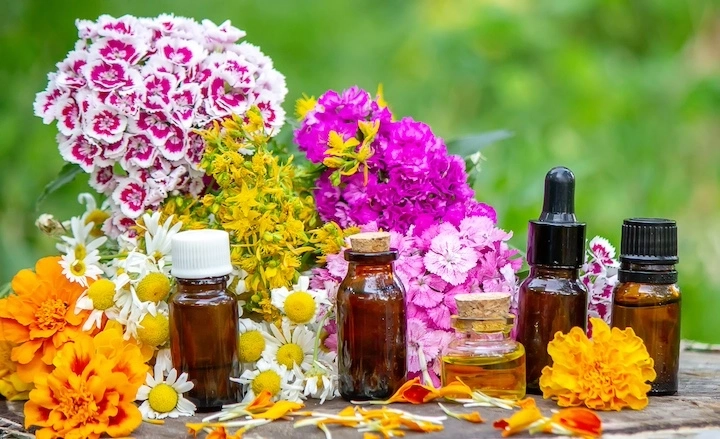
7 essential oils for a beautiful summer
You will have understood, essential oils are wonderful natural health allies, including during the summer period. But to serenely enjoy their benefits, some precautions are necessary.
In summary, remember these good practices:
- Avoid photosensitising essential oils before any sun exposure
- Always dilute your oils in a vegetable oil before skin application
- Be extra vigilant with children and pregnant women
- Store your bottles away from heat and light
- Do not diffuse for more than 30 min, up to 3 times a day
- Do not self-medicate orally without medical advice
- Choose 100% pure and natural essential oils
If in doubt, do not hesitate to ask your doctor or aromatherapist for advice. They are best able to guide you towards a personalised use, adapted to your needs and sensitivities.
So, if you want to spend a zen and safe summer thanks to essential oils, keep these tips in mind and you will have all the keys in hand to get the best out of it... and nothing but the best!
To end on a more positive note and after having reviewed the main mistakes to avoid with essential oils during the summer season, you can approach the subject in a more "positive" light. Because while certain precautions are necessary, essential oils are nonetheless wonderful natural allies to fully enjoy the benefits of summer.
Whether you are going on vacation in the sun or staying at home this summer, these concentrated aromatic extracts will allow you to face the period with serenity and well-being. Anti-mosquito, calming, refreshing... the virtues of essential oils are multiple to accompany you throughout the days and the small hazards of the beautiful season.
Discover without further delay the 7 essential oils that are indispensable to have on hand to spend a successful summer, in top form and without worry!
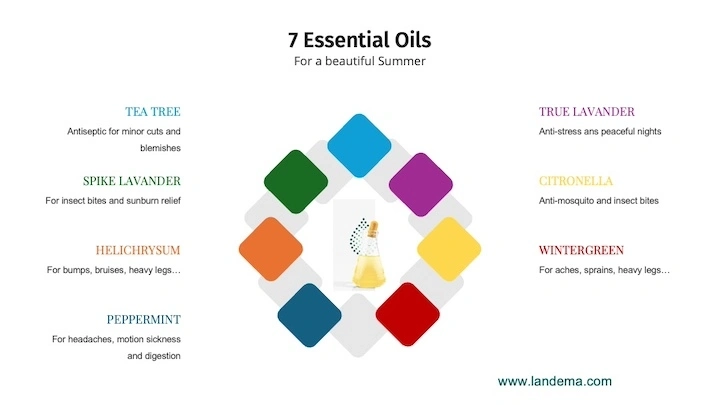
7 essential oils to spend a beautiful summer:
-
True Lavender (Lavandula angustifolia), for peaceful nights and an anti-stress effect
- Citronella (Cymbopogon winterianus), against mosquitoes and insect bites
- Wintergreen (Gaultheria fragrantissima) in case of aches, sprains, heavy legs...
- Peppermint (Mentha x piperita) against headaches, motion sickness and to facilitate digestion
- Helichrysum or Everlasting sandy Corsica (Helichrysum italicum) in case of bumps, bruises and contusions
- Spike Lavender (Lavandula latifolia) to relieve insect bites and sunburn
- Tea tree (Melaleuca alternifolia) in case of small wounds and pimples
Items that could
interest
Our essential oils
will simplify your life
FAQ
As a customer of the Landema website, did you know that we also have a physical store? If you live in the Landes, in New Aquitaine or are planning to stay there, do not hesitate to visit us! We are located in Le Sen, on the Biolandes site, very close to Labrit, Roquefort, and Mont-de-Marsan, in the heart of the Landes de Gascogne regional natural park.
Essential oils are natural aromatic substances extracted from plants. They are often used in aromatherapy for their health and wellness benefits. Essential oils can be extracted from different parts of plants, such as leaves, flowers, barks, roots or seeds. The use of essential oils dates back to ancient times, where they were used for their medicinal properties and to perfume cosmetics and skincare products.
Landema invites you to discover our product range composed of essential oils, absolutes, vegetable oils, macerates or hydrosols. Our catalog will grow over time, stay informed by subscribing to our newsletter.
We invite you to discover our practical guides and our blog where you can discover our advice and our cases of use of essential oils.
Your wishlist
You must be logged in to post a comment.
Login, or create an account
There is no comment for this article yet